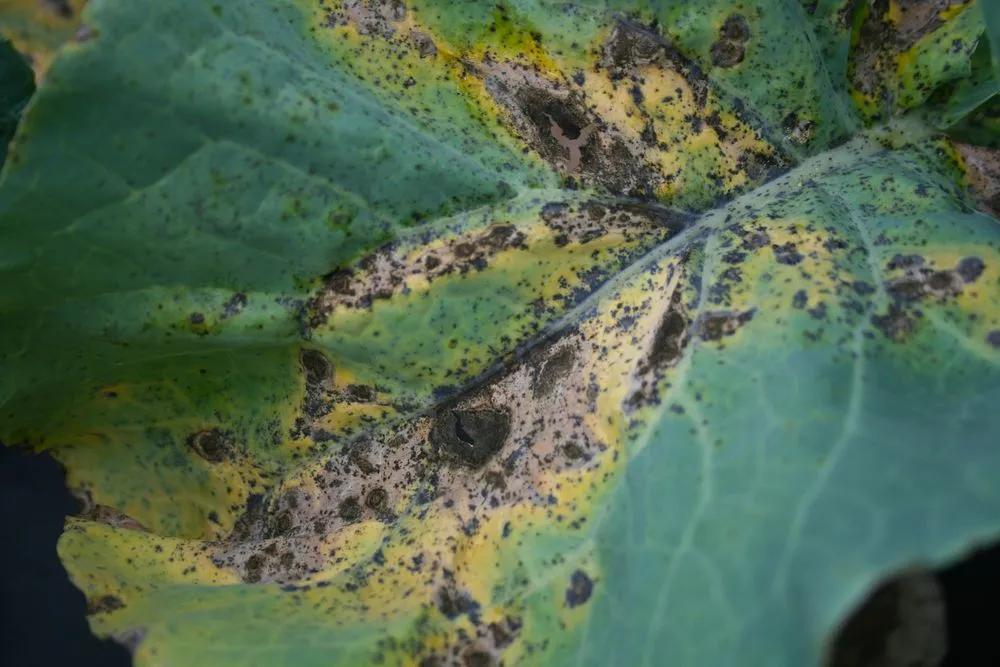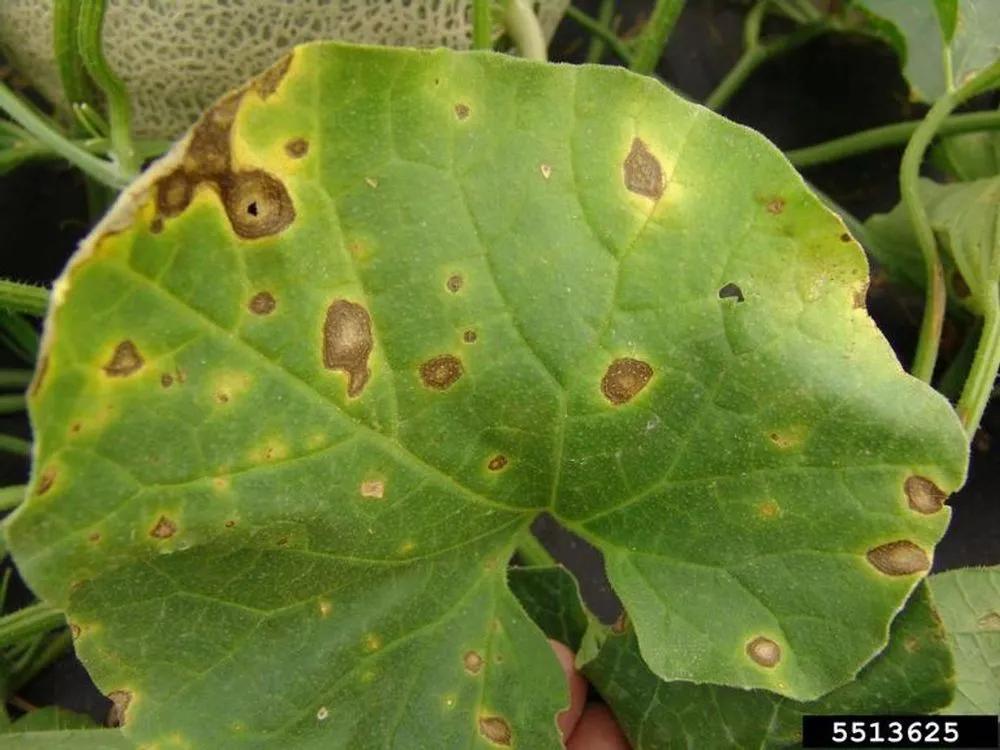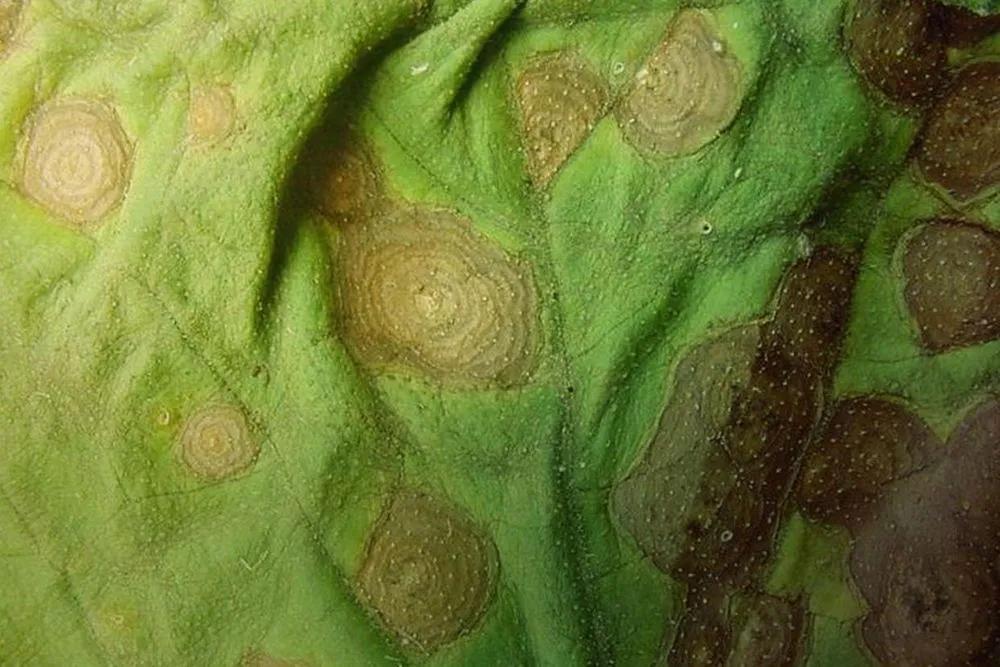This fungal disease is especially problematic because it doesn't have specific preferences and affects almost every plant, but garden vegetables are definitely its favorite. Kale, Brocolli, and other brassica crops are the most common Alternaria victims. Since this disease prefers dumpy and warm conditions, be very attentive to your plants during such periods.
Alternaria blight



Signs of damage
- Tiny black spots. With time they become bigger and more visible.
- Brown spots with yellowish margins. With time tiny black spots become bigger and change their color to gray or brown.
- Large necrotic areas. When the disease progresses, these tiny black spots combine into something more noticeable.
- Rot symptoms on the head. The condition of the plant with this symptom worsens faster.
- Defoliation. The plant becomes weaker, and eventually, leaves drop.
- Reducing the fruit quality. It happens only when the damage is severe.
How to prevent
To prevent this issue, you need to provide your plant with excellent rotation, giving them enough space. This space also has to be clean, so if you see a lot of fallen leaves, it's better to clean the ground from them because rotting leaves are very attractive to fungi. Mulch is not an obvious recommendation, but according to some research, mulched plants are less inclined to various diseases, this one included. This disease often happens when you save seeds from the previous year since the pathogen can overwinter. So it's better to save only healthy plant seeds or to buy the seeds from companies with a good reputation.
Heal
The best solution is to spray fungicide directly on the affected parts of the plant. However, organic gardeners don't use it very often, which makes it slightly harder for them. In their turn, regular ones mostly rely on pesticides and fungicides.
Go Premium to continue reading
Also you’ll get unlimited access to disease identification and all the other beneficial features
More problems
